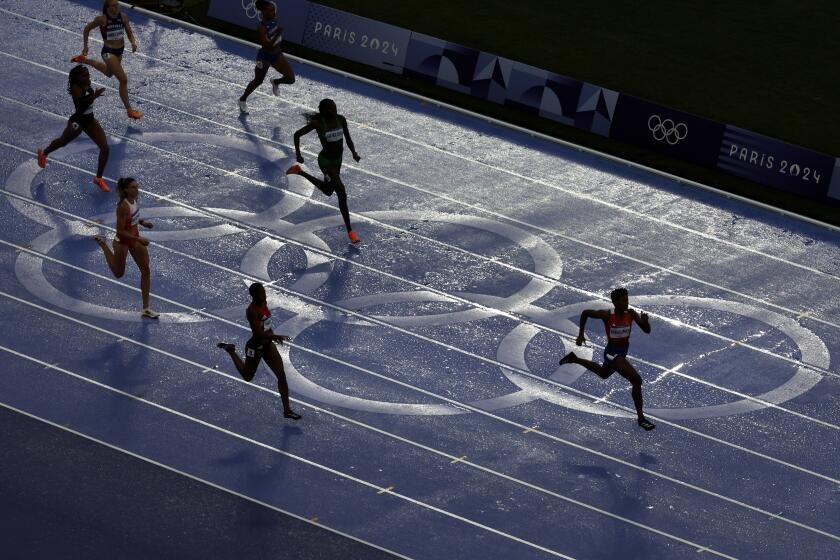
After punching her way to a gold medal, winning bout after bout, the Algerian boxer felt like she had to keep fighting.
Throughout the 2024 Summer Olympics, Imane Khelif faced withering attacks on social media because she did not look stereotypically feminine. Internet trolls accused her of being transgender or a man in disguise.
“I am a woman like any other woman,” she said. “I was born a woman, I lived a woman and I competed as a woman.”
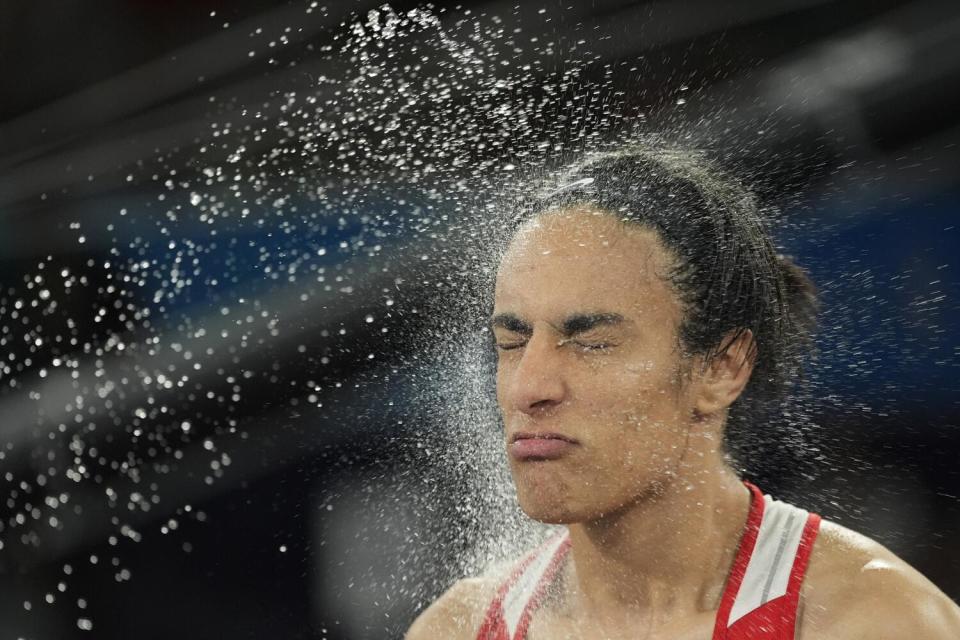

The controversy surrounding Khelif and another boxer from Taiwan underscored a striking contradiction at these Games. The last two weeks in Paris — a setting for the classic novel “A Tale of Two Cities” — have been the best of times and the worst of times for female athletes.
Never before has there been full parity on the field of play, with an equal number of men and women competing. Stars such as gymnast Simone Biles, swimmer Katie Ledecky and hurdler Sydney McLaughlin-Levrone responded with thrilling gold-medal performances.
Yet women here have also faced backlash.
There has been continued focus on skimpy uniforms in track and beach volleyball. An American rugby player was criticized while advocating for body positivity. Critics once again tore into Brittney Griner, the basketball player freed from incarceration in Russia by way of a 2022 prisoner swap.
International Olympic Committee official Marie Sallois mused that “it was difficult to reach [equity] and it will continue to be … there are many hurdles still.”
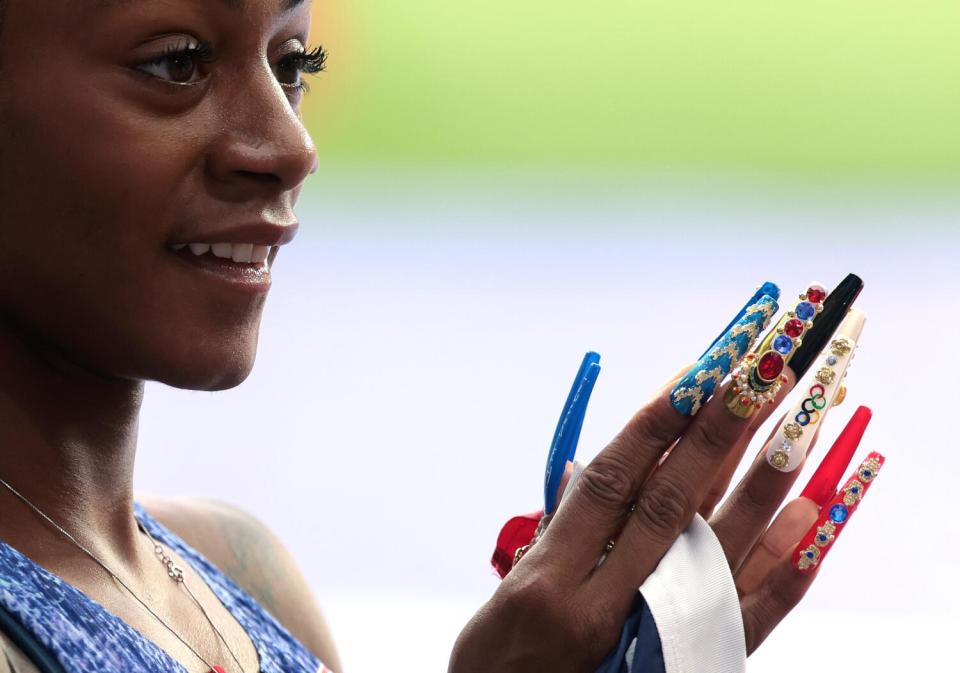

The Games have a checkered history with gender equality — most women were prohibited from even watching the competition in ancient Greece.
Female athletes made their debut at the modern Olympics in 1900 but were limited to a few sports deemed suitably ladylike, such as golf and croquet. As recently as the 1984 Los Angeles Games, men comprised more than 75% of competitors.
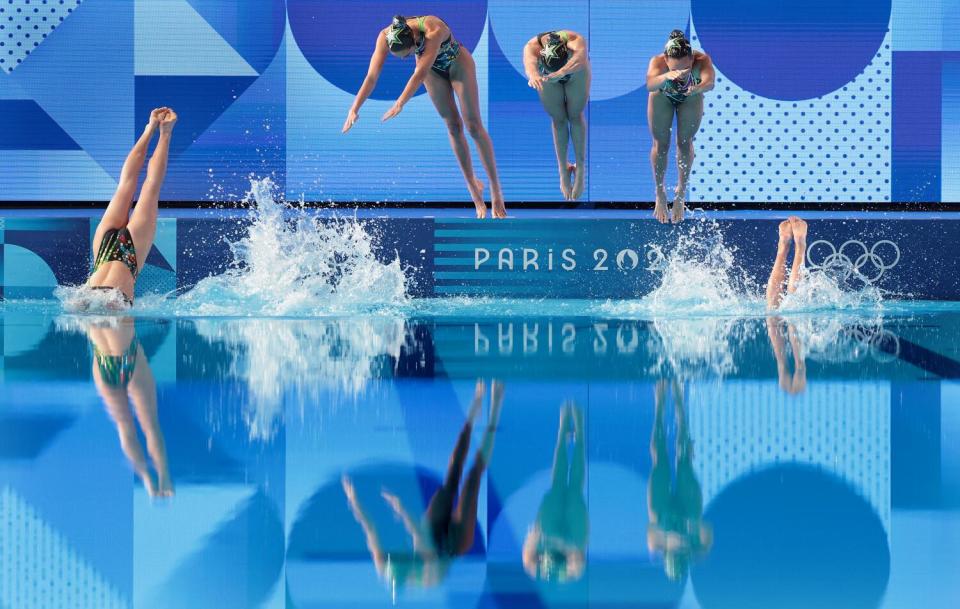

The disparity has improved more recently; the split was 56-44 by 2012 in London and 52-48 three years ago in Tokyo.
This time, IOC President Thomas Bach described full parity among the 10,500 athletes as “our contribution to a more gender-equal world.” His organization distributed guidelines to the media, urging; “Sport appeal, not sex appeal.”
The memo did not reach some fans who, while watching sports such as track, beach volleyball and water polo, debated women’s uniforms rather than their athleticism.
There were clothing concerns of a different type when the French team told its female Muslim athletes that, because of the country’s secularism laws, they could not wear hijab in competition.
Read more: Olympic breakout star Ilona Maher aims to shatter stereotypes about women athletes
“This is not our decision or the will of the government,” said Amelie Oudea-Castera, the national sports minister. “It’s linked to the legal framework of our constitution.”
Sounkamba Sylla, a French sprinter, resorted to a modified baseball cap in the 1,600 relay. Though foreign athletes were not affected, Amnesty International decried the situation as “discriminatory hypocrisy.”
Against this backdrop, American rugby player Ilona Maher continued her very public discussion of stereotypes imposed on female athletes. While helping the U.S. to a bronze medal, the affable, quirky Maher posted game highlights alongside video of her modeling a dress.
“As women, a lot of times our body has been this object to be looked at and to be objectified,” she said. “And I hate that there’s girls out there that feel like they don’t have a purpose for their body and so they want to change it constantly.”
Such comments reinforced Maher’s status as a media darling and social media star; they also engendered ugly remarks about her muscular appearance. Griner faced a similar reaction as the American women played their way to a basketball gold-medal game Sunday.
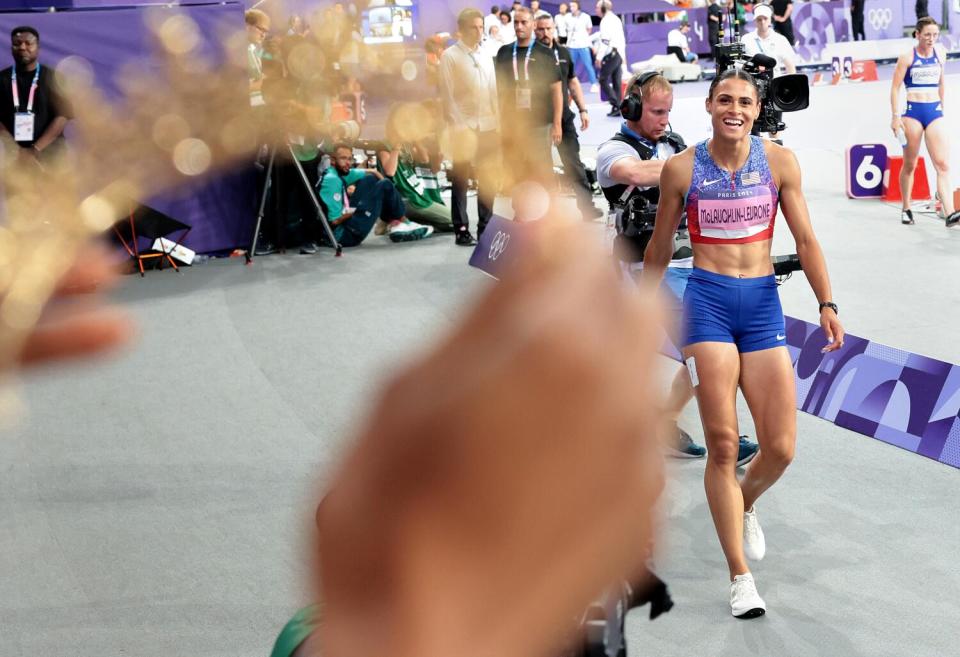

U.S. canoeist Nevin Harrison said she has backed away from the internet because “it was just stressing me out more than it was helping me.”
Despite such resistance, women have excelled on the field of play in Paris.
McLaughlin-Levrone broke her own world record in the 400-meter hurdles and British skateboarder Sky Brown earned bronze with a recently dislocated shoulder.
Biles rebounded from mental health struggles at the Tokyo Games to recapture all-around gold, then went viral after finishing second in the floor routine. Standing on the podium, she and teammate Jordan Chiles, the bronze medalist, bowed in tribute to champion Rebeca Andrade of Brazil.
“This is literally disgusting,” NFL cornerback Marlon Humphrey tweeted.
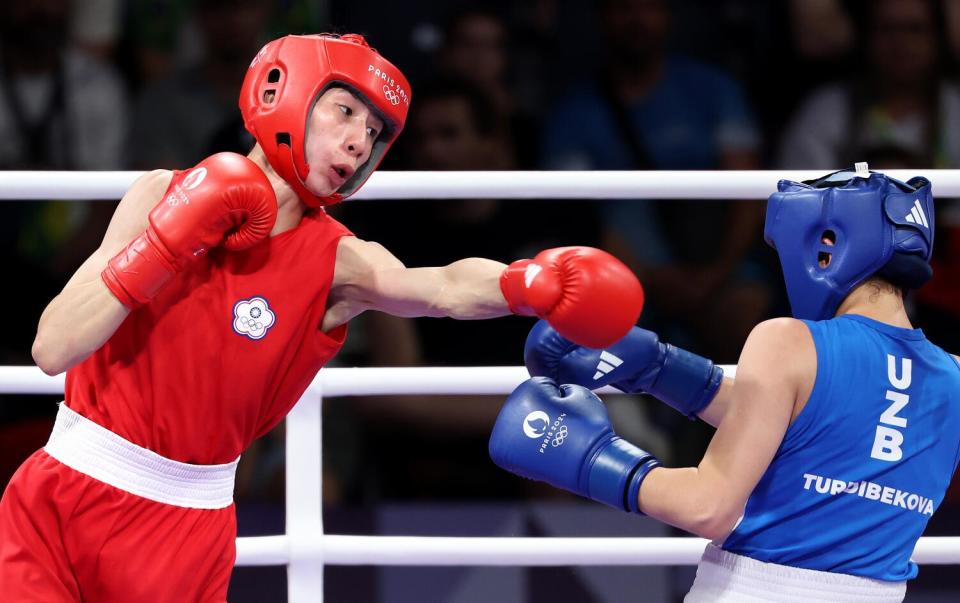

Biles shot back, telling the “Today” show, “I think it’s all about sportsmanship.”
The opprobrium directed at boxers Khelif and Lin Yu-ting of Taiwan was not as easily countered.
Veterans of the amateur boxing scene, they were disqualified from last year’s world championships for failing an unspecified gender test. Their predicament appeared to involve “differences of sex development,” a designation that applies to women who are androgen-sensitive or have naturally occurring testosterone levels in the male range.
Olympic officials deemed them eligible.
Read more: BG is free. Brittney Griner cherishes her Olympic experience after Russian detention
Their success — Lin won gold on Saturday — only exacerbated bickering among sports organizations and triggered unhinged social media posts, many from the U.S., that inaccurately described them as transgender.
IOC spokesman Mark Adams asked the media and public to “dial down this and not turn it into some kind of witch hunt.” His plea went largely ignored.
Though a sports event trying to champion the cause of women had scored significant victories, it seems there is still work to be done.
No one understands that better than Khelif.
“I hope people would quit bullying,” she said. “I hope we will not see any similar attacks in future Olympics.”
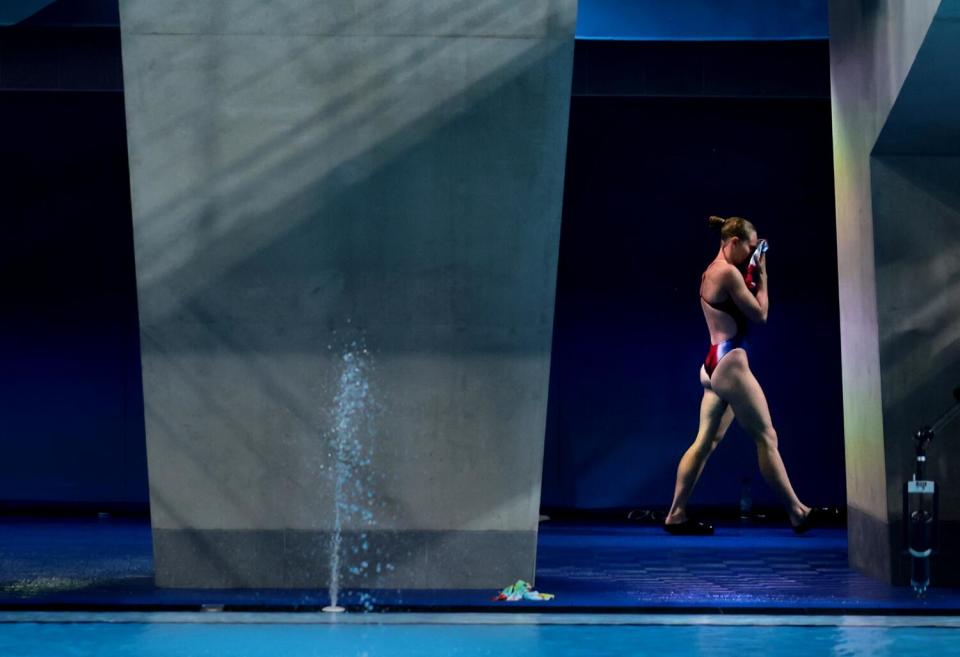

This story originally appeared in Los Angeles Times.

